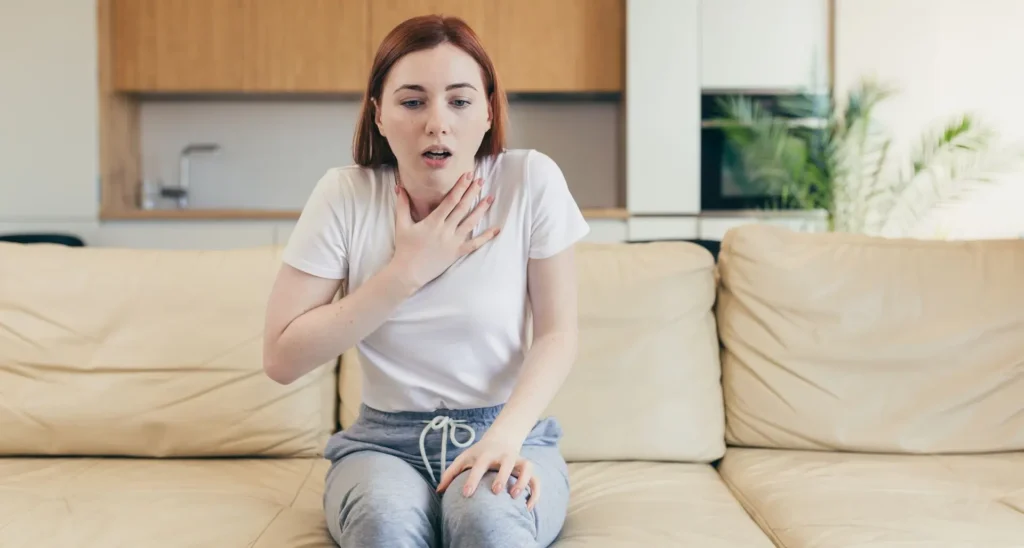Understanding Anticipatory Anxiety: Causes, Symptoms, and Coping Strategies
Anticipatory anxiety is a prevalent psychological condition characterized by heightened apprehension and worry about future events or situations. It goes beyond normal nervousness and can significantly impair daily functioning. Research indicates that anticipatory anxiety can arise in various circumstances, including public speaking engagements, job interviews, medical procedures, and social gatherings.
Certain personality traits, such as perfectionism and rumination, may predispose individuals to experiencing anticipatory anxiety. Past traumatic experiences or negative associations with specific events can contribute to its development.
What is Anticipatory Anxiety?
Anticipatory anxiety is a psychological phenomenon characterized by intense worry and fear about future events or situations. Unlike regular feelings of nervousness, anticipatory anxiety involves a persistent and heightened level of apprehension that can significantly impact an individual’s daily life.
This type of anxiety typically arises in anticipation of specific events or experiences that are perceived as threatening or stressful. It can manifest in various contexts, such as upcoming social interactions, public performances, academic exams, or medical appointments.
Individuals experiencing anticipatory anxiety often dwell on potential negative outcomes, leading to a cycle of rumination and distress. Understanding the nature of anticipatory anxiety is crucial for recognizing its symptoms and implementing effective coping strategies.
Anticipatory Anxiety Symptoms
Anticipatory anxiety is a feeling of worry, nervousness, or dread about a future event or situation. It’s normal to feel some anxiety before a big event, like a job interview or a presentation. But with anticipatory anxiety, the worry is intense and can last for weeks or even months leading up to the event.
Here are some of the common symptoms of anticipatory anxiety:
Emotional symptoms:
- Feelings of apprehension or dread
- Difficulty concentrating
- Irritability
- Restlessness
- Feeling overwhelmed
- Fear of failure
- Anticipating the worst
Physical symptoms:
- Muscle tension
- Headaches
- Fatigue
- Difficulty sleeping
- Upset stomach
- Racing heart
- Shortness of breath
- Dizziness
What Causes Anticipatory Anxiety?
Anticipatory anxiety can stem from a mix of factors, both internal and external to your experiences. Here’s a breakdown of some common causes:
Past experiences: Negative experiences in similar situations can prime you to anticipate the worst. For instance, if a public presentation went poorly in the past, you might dread future presentations excessively.
Current stressors: Daily hassles and ongoing life challenges can heighten your general anxiety, making you more prone to worry about upcoming events.
Fear of the unknown: When facing an uncertain situation, your mind might try to fill the gaps with negative possibilities, leading to anxiety.
Underlying anxiety disorders: Conditions like generalized anxiety disorder (GAD) or social anxiety disorder can make you more susceptible to anticipatory anxiety in various situations.
Anxiety sensitivity: Some people have a heightened fear of the physical sensations associated with anxiety, such as a racing heart or sweaty palms. This fear itself can trigger anxiety in anticipation of those feelings.
It’s important to note that anticipatory anxiety is a normal human response to some degree. However, when the worry becomes excessive and interferes with your daily life, it’s a good idea to seek professional help for managing it.
Types of Anticipatory Anxiety
Anticipatory anxiety itself isn’t categorized into different types but rather arises from various anxiety disorders or phobias. Here are some common conditions that can cause anticipatory anxiety:
- Generalized Anxiety Disorder (GAD)
People with GAD experience excessive worry and anxiety about everyday situations with no real cause. This constant low-level anxiousness can easily escalate into anticipatory anxiety when faced with an upcoming event.
- Social Anxiety Disorder (SAD)
Also known as social phobia, SAD is a persistent fear of social situations where you might be scrutinized or judged by others. People with SAD often experience anticipatory anxiety leading up to social gatherings, dates, work presentations, or any situation where they might be the center of attention.
- Specific Phobias
Phobias are intense and irrational fears of specific objects or situations. Someone with a phobia of spiders might experience anticipatory anxiety if they know they’ll be going to a place where there could be spiders.
- Panic Disorder
Panic disorder is characterized by sudden and recurrent panic attacks. People with panic disorder often experience anticipatory anxiety around situations where they fear having a panic attack, which can create a cycle of anxiety and panic.
- Separation Anxiety
This anxiety disorder is more common in children, but can also affect adults. People with separation anxiety experience excessive worry and distress about being separated from loved ones. This can lead to anticipatory anxiety before situations where separation is likely, such as going to school or work.
How to Stop Anticipatory Anxiety?
Stopping anticipatory anxiety involves implementing various strategies to manage and alleviate its symptoms effectively. One approach is practicing relaxation techniques, such as deep breathing exercises, meditation, or progressive muscle relaxation, to calm the mind and body.
Cognitive-behavioral techniques, such as challenging negative thoughts and replacing them with more rational and balanced ones, can also help reframe the perspective on upcoming events. Engaging in regular physical exercise and maintaining a healthy lifestyle with adequate sleep, nutrition, and hydration can contribute to overall stress reduction.
Additionally, seeking support from a therapist or counselor can provide valuable coping strategies and tools to address anticipatory anxiety. It’s essential to find a combination of techniques that work best for individual needs and to practice them consistently to manage anticipatory anxiety effectively.
How to Deal with Anticipatory Anxiety in Teenage?
Teens are especially prone to anticipatory anxiety due to the pressure to perform well academically, socially, and with extracurricular activities. Here are some ways teens can deal with anticipatory anxiety:
Challenge Negative Thinking: Teens can learn to identify and challenge negative thought patterns that fuel their anxiety. For instance, instead of assuming the worst outcome, they can practice reframing thoughts in a more realistic and positive light.
Mindfulness and Relaxation Techniques: Mindfulness practices like meditation and deep breathing exercises can help teens focus on the present moment and detach from anxious worries about the future. There are many free meditation apps and online resources available specifically geared towards teens.
Healthy Habits: Getting enough sleep, eating a balanced diet, and exercising regularly are all crucial for managing anxiety. These healthy habits promote overall well-being and resilience against stress.
Identify Triggers: Teens can benefit from keeping a journal to track situations or events that trigger their anxiety. Once they identify their triggers, they can develop coping mechanisms to manage their anxiety in advance of those situations.
Seek Support: Talking to a trusted adult, friend, therapist, or counselor can be a great way for teens to process their anxieties and develop coping skills. A therapist can teach them techniques like Cognitive Behavioral Therapy (CBT), which is very effective in managing anxiety.
How to Overcome Anticipatory Anxiety – 6 Tips for Management
Overcoming anticipatory anxiety requires a multifaceted approach that incorporates various techniques to manage its symptoms effectively. Here are six tips for managing anticipatory anxiety:
I. Identify Triggers: Recognize the specific events or situations that trigger anticipatory anxiety. Understanding the root causes can help you develop targeted coping strategies.
II. Practice Relaxation Techniques: Engage in relaxation exercises such as deep breathing, progressive muscle relaxation, or mindfulness meditation to calm your mind and body when feeling anxious.
III. Challenge Negative Thoughts: Challenge irrational or negative thoughts associated with future events. Replace them with more realistic and balanced perspectives to reduce anticipatory anxiety.
IV. Stay Present: Focus on the present moment rather than worrying about what might happen in the future. Mindfulness techniques can help you stay grounded and reduce anxiety about uncertain outcomes.
V. Establish a Support System: Surround yourself with supportive friends, family members, or mental health professionals who can provide encouragement, understanding, and practical assistance in managing anticipatory anxiety.
VI. Seek Professional Help: If anticipatory anxiety significantly interferes with your daily life or becomes overwhelming, consider seeking support from a therapist or counselor. Professional guidance can provide tailored strategies and support to help you overcome anticipatory anxiety effectively.
How to Treat Anticipatory Anxiety?
Treatment for anticipatory anxiety typically involves a combination of therapeutic techniques and lifestyle changes aimed at reducing symptoms and improving overall well-being. Here are some strategies to consider:
– Cognitive Behavioral Therapy (CBT): CBT is a highly effective therapeutic approach for managing anxiety disorders, including anticipatory anxiety. It helps individuals identify and challenge negative thought patterns and develop coping strategies to change their behavioral responses to anxiety-provoking situations.
– Exposure Therapy: This technique involves gradually exposing oneself to the feared situation or trigger, allowing the individual to confront their fears in a controlled and supportive environment. Over time, exposure therapy can help desensitize individuals to the source of their anticipatory anxiety.
– Mindfulness and Relaxation Techniques: Practices such as mindfulness meditation, deep breathing exercises, and progressive muscle relaxation can help individuals cultivate a sense of calm and reduce the physiological symptoms associated with anticipatory anxiety.
– Medication: In some cases, healthcare providers may prescribe medication, such as selective serotonin reuptake inhibitors (SSRIs) or benzodiazepines, to help alleviate symptoms of anticipatory anxiety. However, medication is typically used in conjunction with therapy and lifestyle changes.
– Lifestyle Modifications: Adopting healthy lifestyle habits, such as regular exercise, balanced nutrition, adequate sleep, and stress management techniques, can play a significant role in reducing overall anxiety levels.
– Support Groups: Joining a support group or seeking support from friends, family, or peers who understand what you’re going through can provide valuable encouragement, validation, and coping strategies.
Anticipatory Anxiety VS Cognitive Distortions
Anticipatory anxiety and cognitive distortions are interconnected aspects of mental health that can significantly impact an individual’s well-being. While anticipatory anxiety involves excessive worry and fears about future events, cognitive distortions refer to irrational or inaccurate thought patterns that contribute to negative emotions and behaviors.
Understanding the differences between anticipatory anxiety and cognitive distortions can help individuals recognize and address these challenges effectively.
| Feature | Anticipatory Anxiety | Cognitive Distortions |
| Definition | Feeling of worry, nervousness, or dread about a future event or situation. | Negative thought patterns that are not necessarily based on reality. |
| Focus | Future and potential negative outcomes of an upcoming event. | Interpretations of situations and events, often with a negative bias. |
| Symptoms | Emotional (apprehension, irritability), Physical (muscle tension, fatigue, sleep problems). | None (but contributes to anxiety symptoms) |
| Examples | Worrying excessively about a presentation, dreading a social gathering. | Catastrophizing, fortune-telling, mind-reading, filtering. |
| Impact | Can interfere with daily life, make it difficult to prepare for events. | Can fuel anxiety and other negative emotions. |
| How they relate | Cognitive distortions can trigger anticipatory anxiety, and vice versa, creating a cycle. |
What is the 3 3 3 Rule for Anxiety?
The 3-3-3 rule is a simple grounding technique used to manage anxiety in the moment. It’s designed to shift your focus away from anxious thoughts and bring your attention back to the present moment through your senses. Here’s how it works:
- 3 Things You See: Look around your environment and name three things you can see. Focus on specific details of these objects, like their color, shape, or texture. This engages your visual sense and grounds you in the present.
- 3 Things You Hear: Pay attention to your surroundings and identify three sounds you can hear. It could be traffic noise, chirping birds, or even your own breathing. Focus on the sounds themselves and detach from any narratives or worries they might trigger.
- 3 Things You Touch/Move: Find three things you can touch or move with your body. You can wiggle your toes, touch your chair, or feel the fabric of your clothing. This engages your kinesthetic sense and brings your awareness to your physical body.
By following these steps, you can interrupt the cycle of anxious thoughts and bring your attention back to the present moment through your senses. This can help you feel calmer and more in control of your emotions.
Here are some additional points to remember about the 3-3-3 rule:
Simplicity is key: There’s no need to overthink it. Just focus on identifying the sights, sounds, and sensations around you.
Repeat as needed: You can use the 3-3-3 rule as many times as needed throughout the day, especially when you start to feel anxious.
Combine with other techniques: The 3-3-3 rule can be used alongside other relaxation techniques like deep breathing or progressive muscle relaxation for enhanced benefit.
Remember, the 3-3-3 rule is a simple but effective tool to manage anxiety in the moment. It can help you feel more grounded and in control when anxiety starts to take hold.
Closing Note
understanding anticipatory anxiety is essential for navigating the challenges it presents. By recognizing its symptoms, implementing effective coping strategies, and seeking support when needed, individuals can take proactive steps toward managing anticipatory anxiety and reclaiming control over their lives. Remember, you are not alone in facing these challenges, and with patience, perseverance, and support, it is possible to overcome anticipatory anxiety and thrive.















